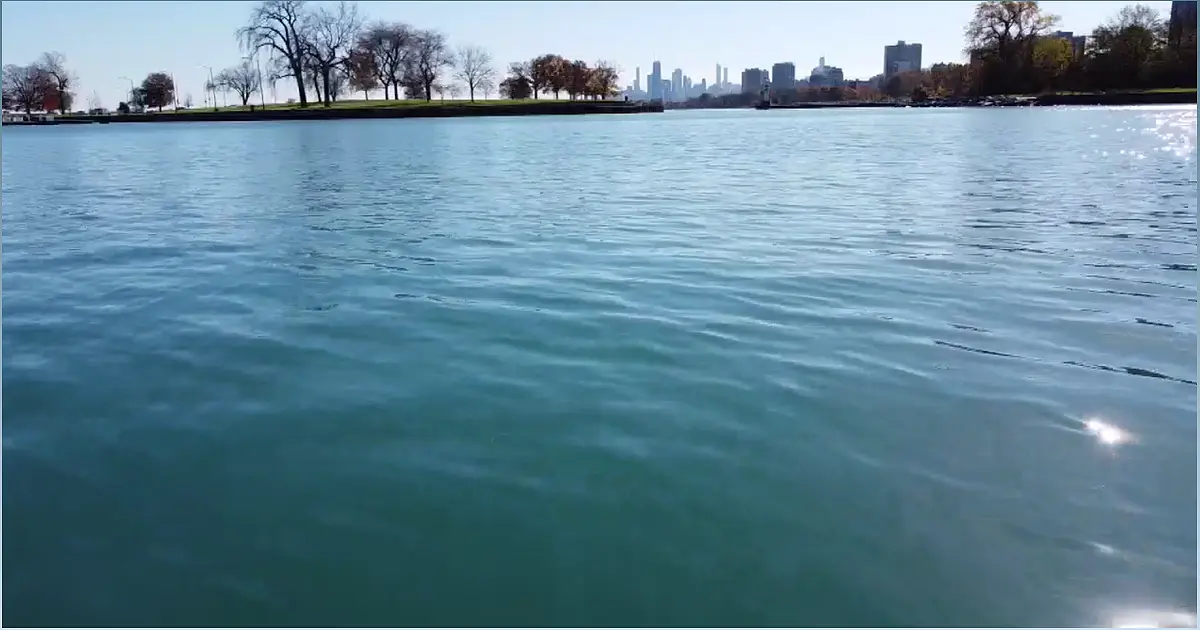Climate change is already making its mark on Chicago, and experts are warning of the significant impacts ahead. As the hottest year on record, 2023 has brought rising temperatures and a host of climate-related challenges. In this article, we'll delve into the effects of climate change in Chicago, from increased flooding to concerns about the city's coastline and water supply. It's time to understand how climate change is affecting our city and why we need to take action.
The Rising Temperatures: A Hotter Chicago
Explore the alarming increase in temperatures and its impact on Chicago.
Chicago is feeling the heat, quite literally. As the hottest year on record, 2023 has brought scorching temperatures to the city. The data compiled by the European Union's Copernicus Climate Change Service shows that average temperatures across Earth have exceeded the pre-industrial average by 1.43 degrees Celsius. This increase in temperature is dangerously close to the 1.5 degree Celsius warming threshold set by climate scientists.
The rising temperatures have far-reaching consequences for Chicago and its residents. Heatwaves become more frequent and intense, posing health risks and increasing energy demands. The urban heat island effect exacerbates the problem, making cities like Chicago even hotter than surrounding rural areas.
As the mercury continues to rise, it's crucial to understand the implications of these soaring temperatures and take action to mitigate the effects of climate change.
Extreme Weather Events: The Impact on Chicago
Discover how climate change is contributing to more frequent and intense extreme weather events in Chicago.
Climate change is not just about rising temperatures; it also brings about more extreme weather events. Chicago is no stranger to the effects of these events, from intense storms to flooding and droughts.
One of the major concerns is the increasing intensity of severe storms, leading to more billion-dollar events. These events not only cause significant damage to infrastructure but also impact the economy and people's lives.
Furthermore, the city is at risk of more frequent and severe flooding. This can result in property damage, displacement of residents, and disruptions to daily life. It's crucial to address the underlying causes of these extreme weather events and implement measures to adapt and mitigate their impact.
Coastline Concerns: Rising Waters and Algae Blooms
Learn about the potential threats to Chicago's coastlines due to climate change.
Climate change poses significant challenges to Chicago's coastlines. Rising water levels and increased storm surges put coastal areas at risk of erosion and flooding. This can lead to the loss of valuable land, damage to infrastructure, and displacement of communities.
Another concern is the proliferation of harmful algae blooms in Lake Michigan. These blooms can contaminate the water supply, affecting both human health and aquatic ecosystems. It's essential to monitor and address these issues to ensure the long-term sustainability of Chicago's coastlines and water resources.
Impacts on the Economy: The Cost of Climate Change
Explore the economic implications of climate change in Chicago.
Climate change not only affects the environment but also has significant economic consequences. The increasing intensity of severe weather events, such as storms and floods, leads to more billion-dollar events. These events result in substantial financial losses for individuals, businesses, and the government.
Moreover, the rising temperatures and changing climate patterns can disrupt various industries, including agriculture, tourism, and energy. It's essential for policymakers and businesses to adapt to these changes and develop sustainable strategies to mitigate the economic impacts of climate change.
Conclusion
Climate change is already having a profound impact on Chicago, and the effects are only expected to worsen. The rising temperatures, extreme weather events, and threats to the city's coastlines are clear signs that urgent action is needed.
It is crucial for individuals, communities, businesses, and policymakers to come together to address the challenges posed by climate change. By implementing sustainable practices, adapting to the changing climate, and reducing greenhouse gas emissions, we can mitigate the impacts and build a more resilient and sustainable future for Chicago.
FQA
How is climate change affecting Chicago's residents?
Climate change is affecting Chicago's residents in various ways. Rising temperatures can lead to more heatwaves, posing health risks. Extreme weather events, such as storms and floods, can cause property damage and displacement. Additionally, the impacts on the economy, including disruptions to industries and increased financial losses, can affect the livelihoods of residents.
What can individuals do to address climate change in Chicago?
Individuals can make a difference by adopting sustainable practices in their daily lives. This can include reducing energy consumption, using public transportation or biking instead of driving, and supporting local businesses that prioritize sustainability. Additionally, advocating for policies that promote renewable energy and climate action can have a significant impact.
How can Chicago prepare for the future impacts of climate change?
Chicago can prepare for the future impacts of climate change by implementing adaptation strategies. This can involve investing in infrastructure that can withstand extreme weather events, such as improved drainage systems to mitigate flooding. Additionally, protecting and restoring natural ecosystems, such as wetlands, can help buffer the impacts of climate change and enhance the city's resilience.

